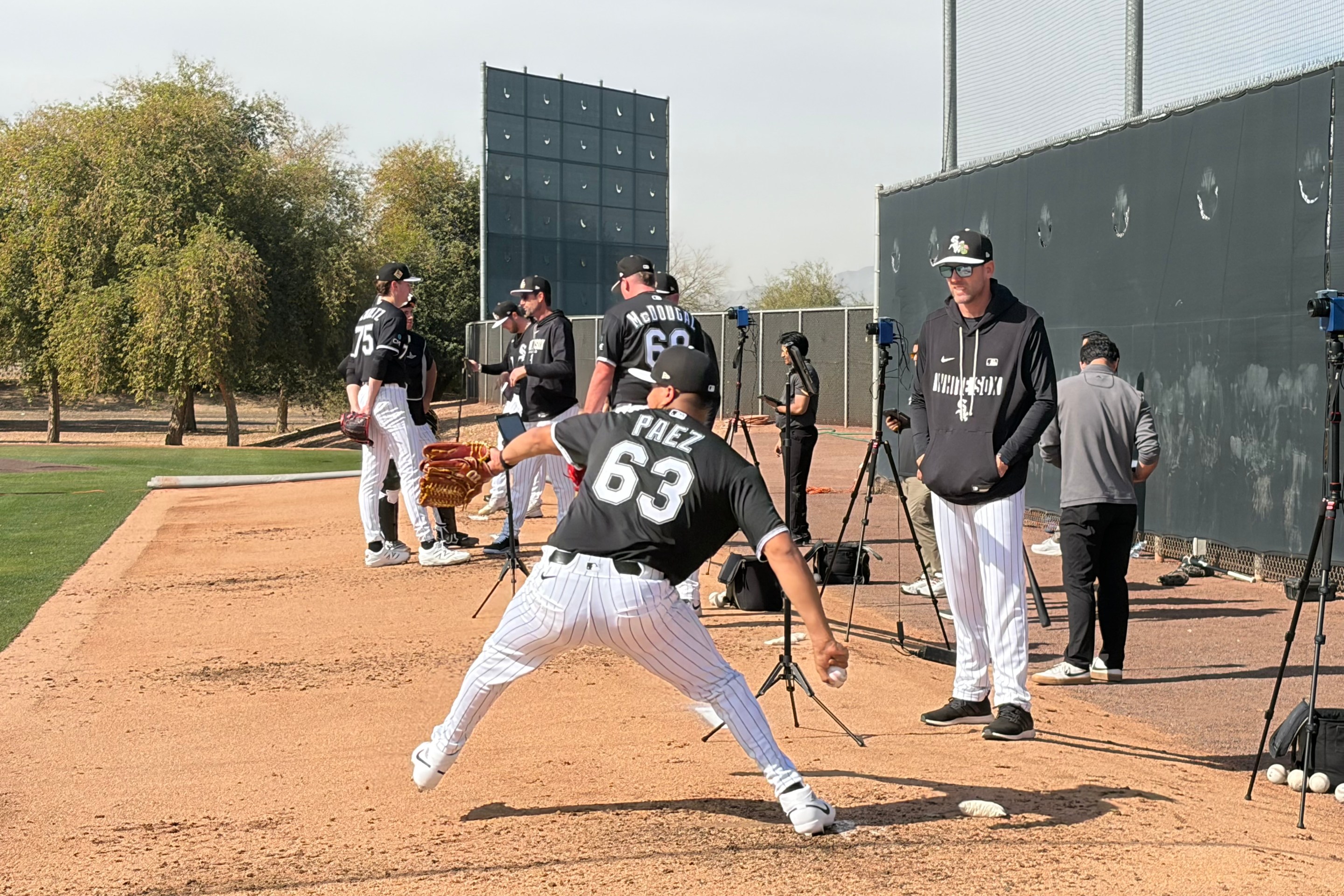Manny Machado's deal with the San Diego Padres isn't official yet, but the White Sox have discussed it like it is.
Also, Bob Nightengale came through with the final offered contract structure from the White Sox, and while it would be audacious by the standards of any contract the White Sox had ever offered, in comparison to the Padres' fairly-clean-so-far 10-year, $300 million deal, it looked like the White Sox cluttered their own path:
There are two ways to look at it. I immediately thought, "they're taking Machado's last $50 million and making him bet it for the chance to win $70 million." Keith Olbermann did a bit more math and came away with:
I'd usually avoid using "stupid," but when watching the White Sox try to explain the failed pursuit that came up $50 million short of the guaranteed money Machado accepted, they added no real thoughtfulness to the conversation.
With the Kenny Williams-Rick Hahn dynamic, Williams often receives the brunt of the derision from White Sox fans, who grew tired of his version of the events long ago. I've long thought this to be an unhealthy simplification that affords Hahn less scrutiny when most mistakes are dismissed as "Kenny moves."
Wednesday provided a fine example of why I don't bother trying to categorize them. Both used their trademarked styles to brief reporters on their disappointment. Both dropped the ball in making White Sox fans feel any better about it.
Here's Williams with a more dramatic approach, some of which might have been authentic since the news had just broken:
It's hard to square up some of the "shock" considering he said Yoan Moncada's move to third base to open spring training was "part of" the decision. He also said the $300 million offer "wasn't feasible to us," which Hahn subsequently undercut by saying there is no "magic cap" during his more formal media conference.
Hahn tried his own hand at breaking the news, but his sturdy method also proved useless against the disappointment.
James Fegan transcribed it for your disgust:
“There are certain elements of this pursuit that as an organization I think we should be proud of – we should be proud of the aggressiveness and creativity of our offer, which we were told was not only extremely competitive, but if the reports out there are accurate was superior to what was ultimately selected in certain ways,” Hahn said, pushing back against the notion of the Sox having a hard cap on their offer. “That said, this is free agency. The players have worked extremely hard to get to this point and they have choices. In the end, deals of this length are extremely complicated with various moving pieces. We were aggressive in trying to balance the length of control, the upside, the risk and the flexibility a contract like this would provide. In the end we felt we made a very compelling offer.”
Proud. Creativity. Extremely competitive. Superior in certain ways. This sounds like something you'd brag about when finishing runner-up for your poster at a science fair, when at least you get credit for participating. In an industry worth billions, this is Hahn describing how the Sox failed to deliver what the client wanted.
Also, it's hard to go with the "extremely complicated with various moving pieces" defense as long as the San Diego Padres' offer continues to be surprisingly straightforward. Right now, it's 10 years, $300 million, one opt-out, no deferred money. There's probably a signing bonus in play, but unless any of the previous reporting is wrong -- a caveat for certain -- there's nothing in here that isn't the standard cost of doing business for a losing franchise. The White Sox just refuse to play ball:
As the news unfolded Tuesday, I'm only seeing that the Padres understood what they had to do from their bargaining position, and the White Sox refused to acknowledge it. And going back to Ken Rosenthal's report that Jerry Reinsdorf didn't want to set the market, the "auction sweat" I wrote about 10 days ago feels more legit than I'd intended. I mean, if the White Sox wanted to finish second on purpose, this is what it would look and sound like, from the pursuit to the offer to the defense.
In the defense of Hahn and Williams, there isn't much they can say for a deal that Reinsdorf negotiated directly. Their own methods might have resulted in a 10-year, $320 million deal for Machado for all I know. Just like I don't see much of a point in guessing "Kenny moves" from "Rick moves" when the front office structure isn't changing, there isn't a point in trying to isolate them from Reinsdorf's wishes. At deals of this magnitude, this is how the decision-making engine is going to work.
If I have to judge Williams and Hahn against each other for any reason, I give Williams the massive edge in his response tactics, because he came closer to succeeding with the combo of dismay, shock, grave realities of limitations, we'll get 'em next time. It's all dissatisfying, but it's all dissatisfying.
Also, Williams gets credit for the most honest line of them all when comparing the efforts from higher levels.
"You've got to give it to them," Williams said. "They are in a similar trajectory as we are. And for the same reasons we were after him, they were after him. Their ownership group did a great job in trumping everyone else."






